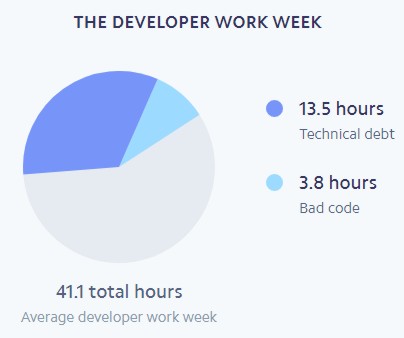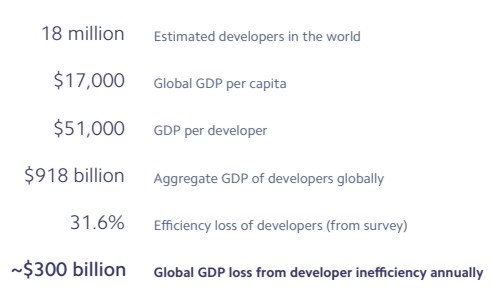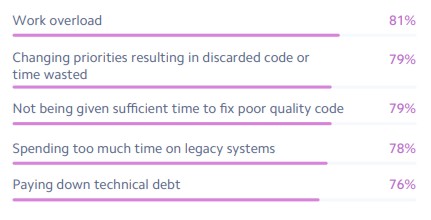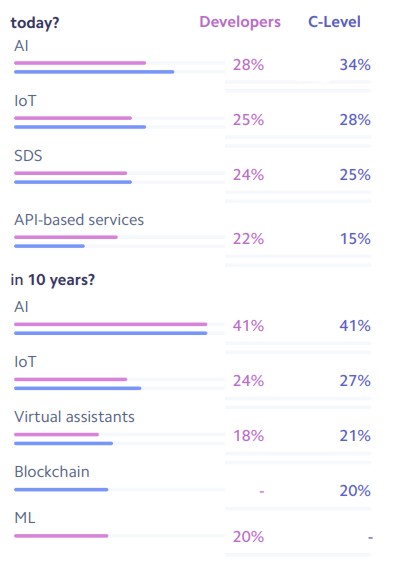| Old and Bad Code Waste Billions |
| Written by Sue Gee | |||
| Monday, 10 September 2018 | |||
|
Companies lose upward of $300 billion a year through developers devoting almost half their time to maintaining legacy systems or dealing with bad code. This limits the ability of businesses to keep abreast of emerging trends. To come to these conclusion, the payment processing company Stripe partnered with Harris Poll to conduct a study across more than thirty industries to look at how businesses are currently using developer talent, and what they could be doing differently. More than 1,000 developers and more than 1,000 C-level executives, in the US, UK, France, Germany, and Singapore participated. The survey was a mix of fact and opinion and the finding that is so depressing is that half of the average developer's time can be taken up with maintenance chores such as dealing with bad code and errors and debugging, refactoring and modifying legacy code. The situation was worst in France where developers estimated 20.9 man hours of a 39.6 hour working week can be wasted in this way. The overall average was 42% and the majority (nearly two-thirds) of developers considered this excessive. According to the survey bad code alone equates to nearly $85 billion worldwide in opportunity cost lost annually and the overall impact of "technical debt" on GDP adds up to around $300 billion according to this calculation, which takes as its sources Evans Data Corp and CIA Factbook as well as Stripe research: Asked about the constraints on their companies growth, C-level executives put access to skilled developers at the top of the list (55%), with legacy IT infrastructure also prominent (51%). Frustration at having to maintain legacy software has been expressed in previous surveys, see for example Stack Overflow Publishes Largest Ever Survey, so it is not surprising that maintenance of legacy systems came top (52%) of developers' list of factors hindering developer productivity. It also loomed large as a negative impact that affected their personal morale, a list headed by work overload: The survey also asked about the technology trends that were having the greatest impact on companies - both today and 10 years into the future. Both C-level executives and developers put AI top of both lists - being unanimous that 10 years hence AI would be even more important. While IoT came in second place its impact isn't set to increase. Overall the survey found C-Level executives to be more optimistic than developers that their companies will be ready to tap into these trends, with developers worried about not having the right technology infrastructure and skilled employees. The main takeaways from the survey are:
More InformationThe Developer Coefficient (pdf) Related ArticlesStack Overflow Publishes Largest Ever Survey
To be informed about new articles on I Programmer, sign up for our weekly newsletter, subscribe to the RSS feed and follow us on Twitter, Facebook or Linkedin.
Comments
or email your comment to: comments@i-programmer.info |
|||
| Last Updated ( Monday, 10 September 2018 ) |







